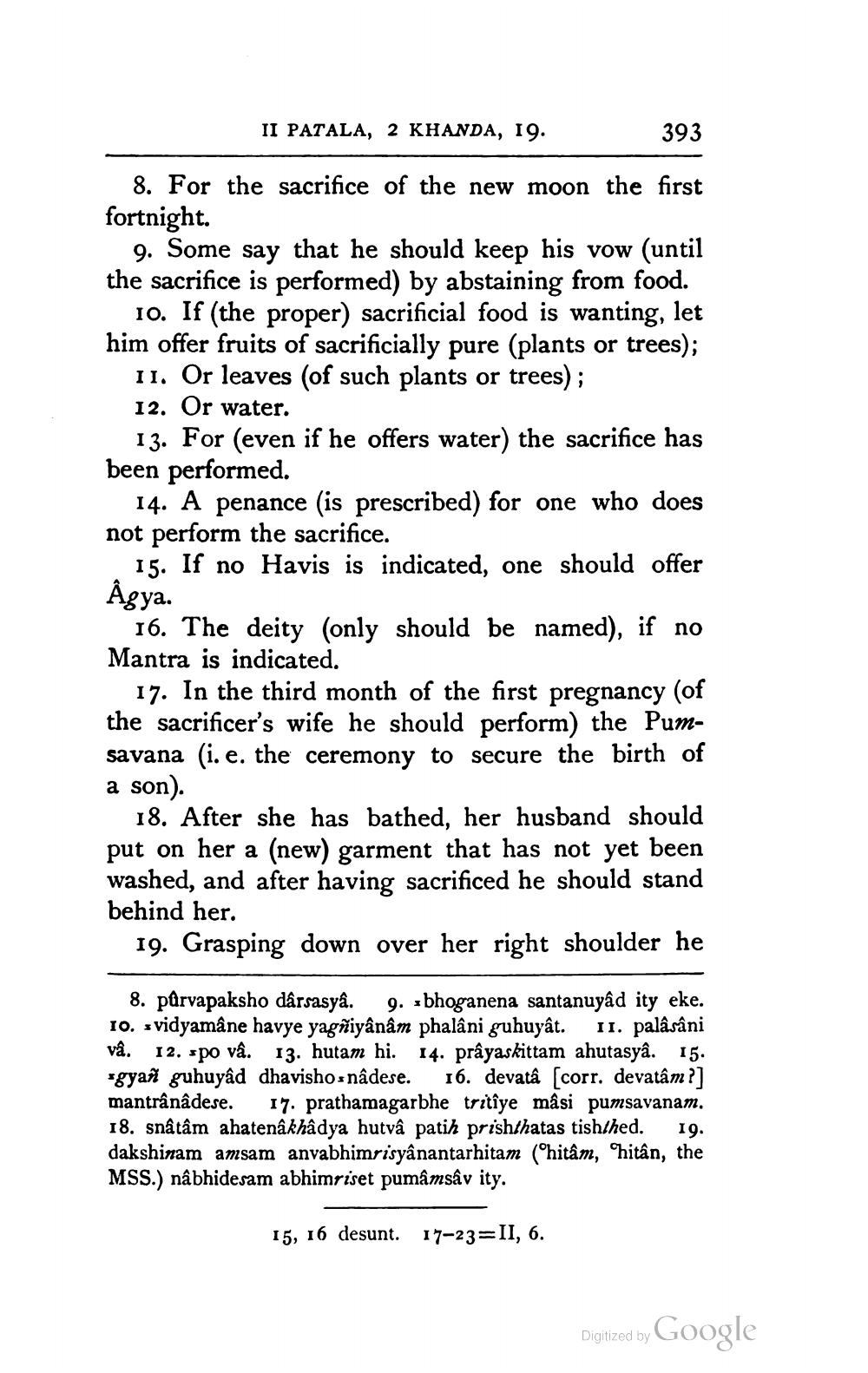________________
II PATALA, 2 KHANDA, 19.
393
8. For the sacrifice of the new moon the first fortnight.
9. Some say that he should keep his vow (until the sacrifice is performed) by abstaining from food.
10. If (the proper) sacrificial food is wanting, let him offer fruits of sacrificially pure (plants or trees); 11. Or leaves (of such plants or trees);
12. Or water.
13. For (even if he offers water) the sacrifice has been performed.
14. A penance (is prescribed) for one who does not perform the sacrifice.
15. If no Havis is indicated, one should offer Âgya.
16. The deity (only should be named), if no Mantra is indicated.
17. In the third month of the first pregnancy (of the sacrificer's wife he should perform) the Pumsavana (i. e. the ceremony to secure the birth of a son).
18. After she has bathed, her husband should put on her a (new) garment that has not yet been washed, and after having sacrificed he should stand behind her.
19. Grasping down over her right shoulder he
8. purvapaksho dârsasyâ. 9. bhoganena santanuyâd ity eke. 10. vidyamâne havye yagñiyânâm phalâni guhuyât. II. palâsâni vâ. 12. po vâ. 13. hutam hi. 14. prâyaskittam ahutasyâ. 15. gyan guhuyâd dhavisho nâdese. 16. devatâ [corr. devatâm?] mantrânâdese. 17. prathamagarbhe tritîye mâsi pumsavanam. 18. snâtâm ahatenâkhâdya hutvâ patih prishthatas tish/hed. dakshinam amsam anvabhimrisyânantarhitam (hitâm, hitân, the MSS.) nâbhidesam abhimriset pumâmsâv ity.
19.
15, 16 desunt. 17-23=II, 6.
Digitized by Google




